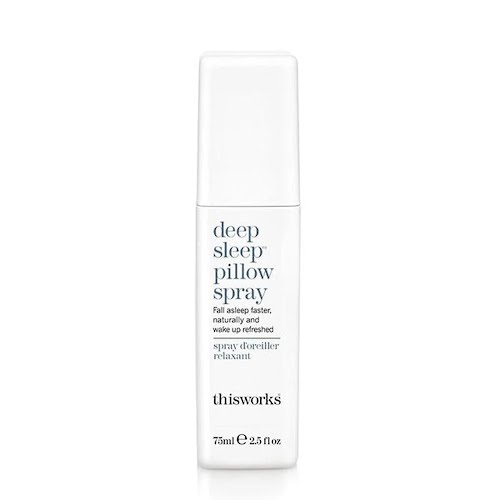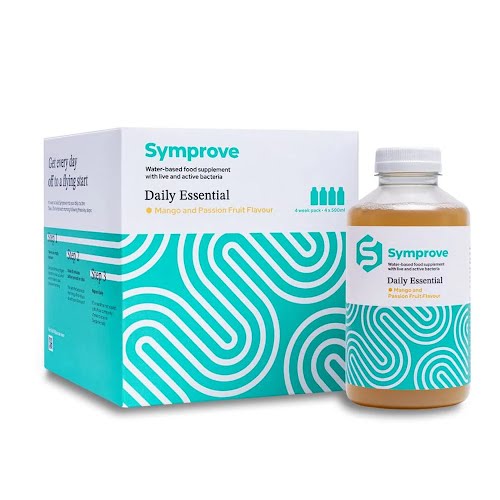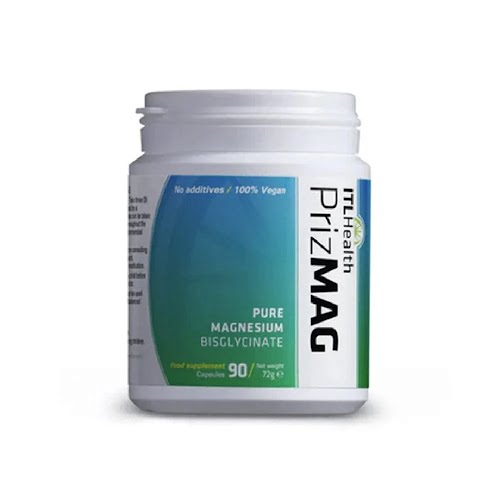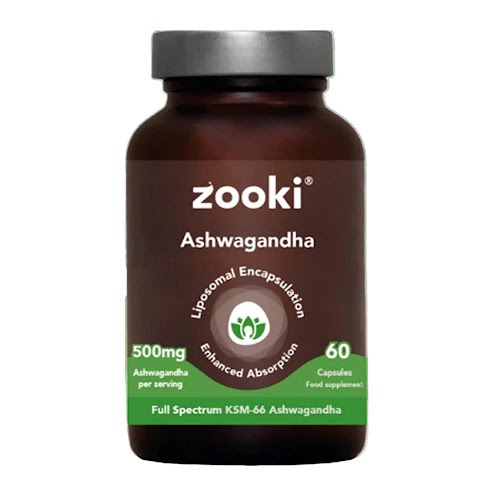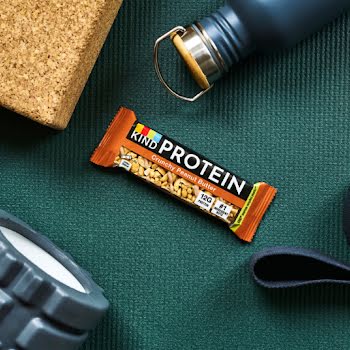
Top tips to tackle stress and anxiety, from a pharmacist and integrative health expert


We speak to pharmacist and integrative health expert Liz O’Hagan about stress and anxiety, their impact on gut health, and how over-the-counter supplements can help to alleviate some symptoms…
When it comes to really understanding stress and anxiety, and finding the ways to combat them that work for you, education is key. As Liz O’Hagan—a community pharmacist, trained in integrative health and lifestyle medicine—says, no two people experience the very same manifestations of anxiety.
As an integrative health expert working to help people understand how their lifestyle choices can improve overall health outcomes as part of Meaghers Pharmacy Pharmacy 360 programme, it’s safe to say Liz’s advice is worth its weight in gold.
As a pharmacist and health expert, how would you define stress and anxiety? How do they differ?
Although stress and anxiety can present with similar symptoms, it is important as a pharmacist, to recognise the difference between the two, so that we can provide appropriate advice and support to patients. Stress is the body’s natural response to a perceived threat or challenge. It usually has an identifiable external cause and can be either positive or negative. It is usually temporary and often goes away once the stressor is removed or managed.
Anxiety is a more persistent state of worry or fear that might not have a clear external cause. It can have a huge impact on everyday activities and overall well-being.
How do stress and anxiety affect the body physically and mentally? What are some common symptoms you see, specifically in women?
Chronic, prolonged periods of stress can lead to significant health issues. Common symptoms of chronic stress and anxiety include headaches and migraines, raised blood pressure, altered mood, and stomach issues.
The gut is particularly sensitive to stress and anxiety due to the gut-brain axis, which is a two-way communication network between the brain and the gut. Stress can slow down or speed up the digestive process, causing constipation or diarrhoea. Anxiety increases acid production, leading to acid reflux and heartburn. Stress hormones can also alter our gut bacteria, leading to dysbiosis and further digestive issues. Both stress and anxiety can trigger or exacerbate IBS symptoms like abdominal pain, bloating, and irregular bowel movements.
For women, chronic stress, which elevates cortisol levels (one of the stress hormones), can also disrupt hormonal balance, potentially affecting menstrual cycles and can lead to weight gain. Women also seem to suffer more commonly from sleep disturbances as a result or stress or anxiety.
What role do medications play in managing stress and anxiety, and what are some commonly prescribed options?
This is how I describe anti-depressant and anti-anxiety medication to my patients: If you broke your leg, you would need crutches to get around. But if you wanted to get fully back to fitness, you would need to do physio. The medication is your crutch, but taking an honest look at your day-to-day lifestyle and seeing where you might need to make changes is your physio. Ask yourself: How are you managing stress? How are you fueling your body? Are you sleeping well? Do you exercise regularly? Do you get enough rest? Are you willing to try and get to the root cause of your stress and anxiety?
The aim of most antidepressant medication is to help increase levels of neurotransmitters (or brain chemicals), like serotonin and norepinephrine, which are associated with mood regulation.
Commonly prescribed medication includes (but is not limited to) sertraline, escitalopram, fluoxetine, duloxetine and venlafaxine. These can help people to feel better and hopefully motivate them to introduce other lifestyle changes. Did you know that exercise (including dancing!) increases levels of serotonin and norepinephrine hugely? Can you imagine the impact of people introducing a simple exercise routine, even dancing around the kitchen?
Are there any over-the-counter supplements that can help alleviate symptoms?
Supplements that can help anxiety symptoms are Magnesium bisglycinate, such as PrizMag or Zooki Magnesium bisglycinate, and Ashwagandha supplements. They can help with muscle relaxation, enable a feeling of calm and can also improve sleep.
Essential oils like lavender can be great to help create a relaxing environment and a wind-down ritual. I love the This Works Deep Sleep Pillow Spray.
As mentioned, so many symptoms of stress can affect our gut. Just think about what happens before a big interview, or an exam. We feel it in our gut! We know that stress can alter the gut bacteria, which is crucial for regulating our immune system and hormone production and affecting our mental health, metabolism and general energy — so pretty much everything!
Gut health supplements, like Symprove, are brilliant to help restore balance in the gut microbiome, keeping those good bacteria healthy and happy.
Can you discuss the potential side effects of using medications for stress and anxiety management?
When it comes to medication for anxiety and stress, it is important to mention that no two people are the same. It’s important to understand potential side effects and remember if a medication doesn’t suit you, there are other options to try instead.
The most common side effects that I come across in the pharmacy are things like changes in appetite (causing weight gain or loss), numbness or flatness in mood and many people experience a decrease in libido, including erectile dysfunction. Some people experience dizziness or headaches initially, but this usually subsides within the first week or two of treatment.
How can lifestyle changes, such as diet and exercise, impact stress and anxiety levels?
While medications can be highly effective, they are just one piece of the puzzle. Lifestyle changes, particularly in areas around our diet, exercise and sleep, play a pivotal role in managing stress and anxiety. Be mindful of what you’re fueling your body with. Try to eat a nutritious, balanced diet, including lots of colourful vegetables and fruit. Keep yourself hydrated with water and limit caffeinated, sugary, and alcoholic beverages.
Physical exercise is very important as it reduces stress and increases “feel-good” endorphins in the body. It helps to reduce cardiac diseases, and diabetes and reduces symptoms of depression and anxiety. Whether it is a brisk walk, something more vigorous, or a gentle stretch… Just get moving your body.
Sleep is another important element when we talk about coping with stress and anxiety. Sleep is like emotional first aid and is crucial to repair and recharge our body.
What advice do you have for someone who is hesitant about taking medication and/or supplements for their stress and anxiety?
I would advise people to speak openly and honestly with a trusted healthcare professional, such as your pharmacist or GP. You can visit any of the 10 Dublin-based Meaghers Pharmacies for help and advice – they have a private consultation room where you can have a chat with the pharmacist. It’s free and no appointment is required, so, know that option is always there.
I would also recommend looking at the seven elements we focus on as part of Pharmacy 360 at Meaghers. The seven elements are Core Values, Sleep, Stress, Nutrition, Movement, Connections & Relationships, and Environment. Acknowledging that all of these things can impact our general health and wellbeing is a great start – then look at what lifestyle changes you might want to try.
Do you have any personal experience with stress and anxiety? If so, what are some techniques you use to help manage this?
Yes, I do experience stress regularly – probably at varying levels every day. My goal is to try to manage my reaction to stress in a healthy way. I have also experienced anxiety many times over the years. Big decisions and uncertainties about the future can trigger feelings of anxiousness.
For me, a simple way to alleviate stress or anxiety, and bring me back to the present moment, is to practise a simple breathing exercise, which helps to relax the nervous system. If you ever feel anxious, overwhelmed, or stressed, try this exercise below.
4-7-8-Breath
- Inhale slowly through your nose for a count of 4 seconds, feeling the air go deep down into your lower belly.
- Hold your breath for 7 seconds if this is comfortable (If pregnant, do for less).
*Tip: Count downwards, from 7, 6, 5, 4, 3, 2, 1…
- Exhale slowly through your mouth for a count of 8 seconds, with a “whooshing” sound.
- Repeat this cycle of breath x4 times.
Staying hydrated is my final tip. It sounds very basic, but hydration is essential as even mild dehydration can impact mood, concentration and energy levels. Keep an eye on your water intake and aim for at least two litres of water per day (more if exercising).
Meaghers Pharmacy is currently offering IMAGE readers 15% off with their exclusive discount code IMAGE15.
Meaghers Pharmacy is a leading pharmacy with 10 Dublin-based locations and a thriving online store at meaghers.ie. Speak to the Meaghers teams today for the best advice and support around health and wellness, skincare and beauty.














